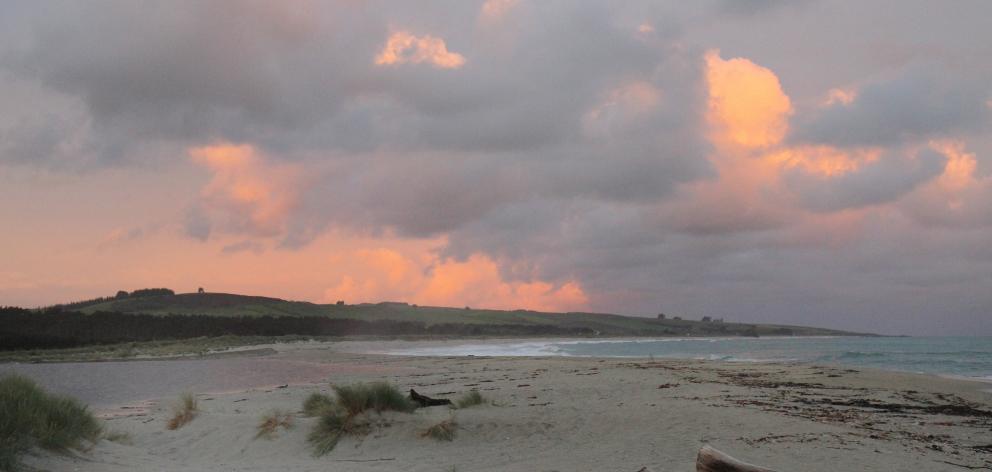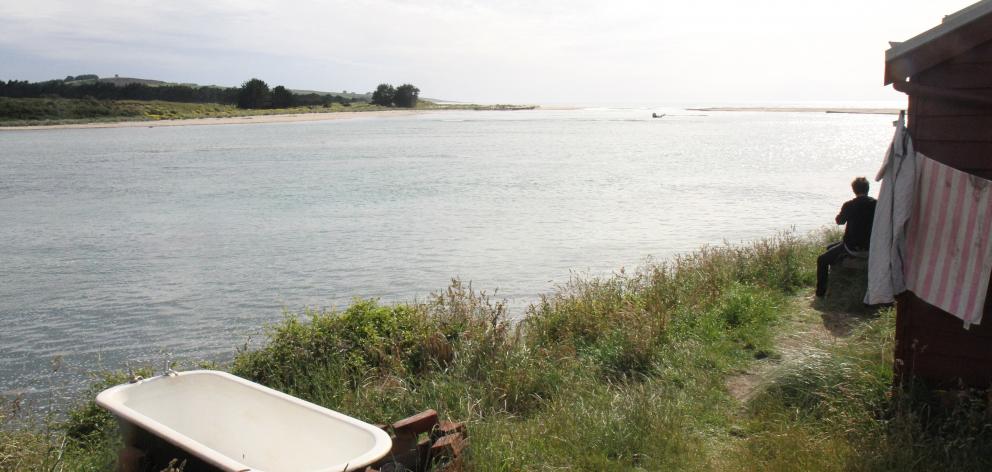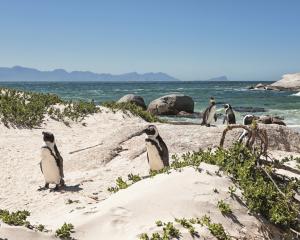
The note on the kitchen bench makes for grim reading. Penned by the previous guest at Roly’s Crib, it wishes us a happy stay yet lists a number of inadequacies with the 100-year-old, three-room cottage on the banks of Toko Mouth.
Chief among these is the state of the crib’s composting toilet.
We’ve been warned by Roly himself that, due to the recent popularity of his place, which he rents out on Airbnb for around $50 a night, its composting toilet is no longer up to handling "number twos".
The note on the bench is more emphatic: DO NOT USE THE TOILET. IT IS DISGUSTING!
A reluctant trip to the far end of the laundry confirms this. On the upside, it miraculously doesn’t smell and is rapidly banished from sight, if not memory, by a curtain that stretches across from the shower.

According to note one, there is also a decomposing rat in the bunkhouse, which lies a short remove from the cottage.
It’s at this point my sister, who has come out with my mum from Dunedin to see Toko Mouth, a settlement of 80 or so little, mainly weatherboard cribs 20 minutes southeast of Milton, suggests that my 4-year-old daughter and I "pull the plug" and come back into town with them.
Looking out of the kitchen window at an angry sky lashing the estuary and the surrounding farmland hills with rain, her suggestion has its merits.
But, given that there’s a couple of flushing toilets and a water tap less than a minute’s walk down the road at the domain, the cottage’s lack of loo and running water feel like inconveniences rather than disasters.
My partner is also arriving from Germany the next day and we’d picked the crib — which enjoys magnificent views over the Tokomairaro River and towards the Pacific that, when you lie on the bed in the cottage’s front room, give you the impression of being at sea — as a good place to decompress during the run up to Christmas.
So while Mum and Lou watch Florence, I dispose of the bunkhouse rat in a shallow grave, fill up a couple of 10-litre water containers left behind by one of the note writers, and chop some kindling for a fire in the cottage’s wonky old coal burner.

Given its position on the east coast, it’s no surprise the weather continues to be a mixed bag for the four nights we spend in the little coastal community.
The temperature of the air and estuary remain too cool for swimming, but mercifully most of the rain falls at night, when Aileen, Florence and I are tucked up in the cottage’s queen-size, foam mattress bed.
Like the well-worn armchairs and chaise lounge in the kitchen, the bed is basic but comfy and the patter of rain on the roof and the sound of breakers pounding the sand a couple of hundred metres away lull us into slumber each night.
During the days, we fly kites and collect shells on the sweeping, blustery beach and make little driftwood rafts to sail on a creek that runs into the sea at the other end of the settlement.
There’s no TV or internet connection to rob us of our time, and mobile phone reception is limited to spots near the beach, so the days feel long and satisfying.
If the weather forces us inside, we sit at the table in the bedroom and read, write and draw pictures in between gazing out to sea.
Collecting firewood and building fires in the coal range so we can dry out our damp socks and heat the kettle for tea become pleasurable daily tasks. One wet afternoon, we jump into the car and drive to Balclutha, which is half an hour away, for coffee and caramel slices and a poke around its secondhand shops.
As we’re staying in Toko Mouth on the cusp of the holiday season and from a Sunday to Thursday, we more or less have the beach, which signs warn is prone to rips and not safe for swimming, to ourselves. Elsewhere, we’re lucky if we see more than five people a day.
An amicable chap in his mid-50s, whom we chat to on the road outside the crib a couple of days into our stay, tells us there are only a
handful of permanent residents in Toko Mouth.
He and his wife are two of them, having retired here from Gore. They were enamoured with the peacefulness of the place, he says. Apart from Christmas and New Year, that is, he adds, shaking his head dolefully.
"It’s crazy, the whole place is full and there are parties everywhere. We leave for a couple of weeks and come back when things have quietened down again."
Little of what’s going on in Toko Mouth seems to escape his attention, and we learn he spotted Florence sitting on my lap and steering the car as we trundled down the road to the beach the previous evening.
I’m half expecting a telling-off, but he laughs and says the laidback nature of the place lends itself to certain freedoms. Among them is the small bonfire we light one on the bar that’s formed across the river mouth, far from anything flammable.
Sheltering behind a twisted, washed-up log, we chuck driftwood on to wind-buffeted flames as the sun slips slowly behind the hills that flank Toko Mouth.
Since our arrival, we’ve only been once in touch with crib owner Roly, who, according to the guy from Gore, lives in Wellington and rarely spends time in Toko Mouth.
A quick message about the state of the place was met with an apology; then on the last day we’re there, we learn he’s refunded us fully for our stay.
It’s a nice gesture, especially as we’ve had a lovely time despite the challenges of no loo or running water.
That final evening, I fill the crib’s outdoor bath with cold water ferried in containers from the domain and boiling water in pots from the range.
It’s a laborious process, filling and heating the bath, particularly as the wind does its best to blow out the eye-stingingly smoky fire I’ve lit under it.
Yet once submerged, glass of wine in hand, beneath an evening sky bruised purple and blue as the estuary laps below and waves thud in the distance, the rewards comfortably outstrip the effort expended.












